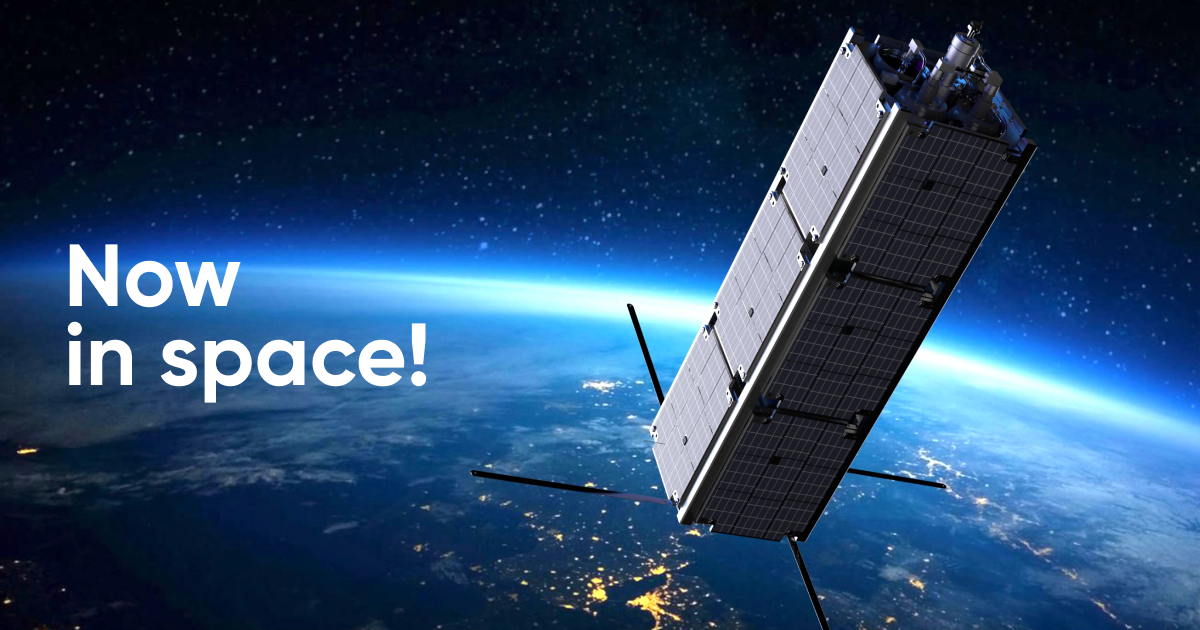On Tuesday, at 08:52:38 (Moscow time), from the Baikonur Cosmodrome 16 small spacecraft designed within the educational project Space-π, were launched into space, while being an additional payload to a commercial foreign satellite. The main and additional payloads were sent into orbit with the help of the launch vehicle Soyuz-2.1b and the Fregat upper stage. The simultaneous launch of 16 Russian satellites broke a record in the history of the Russian rocket and space industry.
Among small spacecraft launched is our СubeSat Geoscan-Edelveis. This is the first-ever private spacecraft from Saint Petersburg that was sent into orbit! The CubeSat’s name was proposed by Anastasiia Kasianenko, a member of Russian school students’ union, and it refers to the Edelweiss plant.
All 16 small spacecraft went by turns from launch canisters, designed by Airspace Capital, into orbit above the Indian Ocean. The first session with our CubeSat holds at 11:58:45 – 12:09:22 (Moscow time), spare session — at 23:16:19 – 23:26:13 (Moscow time). Geoscan ground station is located in Saint Petersburg, on the office roof.
Orbit characteristics for the Geoscan-Edelveis spacecraft are: the altitude of 469х508 km (perigee and apogee), orbit inclination of 97 grades, rotation around the Earth for 1.5 hour.
Geoscan-Edelveis is designed:
- to test the Geoscan 3U platform;
- to conduct educational activity within the project Space-π;
- to communicate with radio amateurs worldwide while they work at their thesis (by the way, a call sign for our CubeSat is RS20S);
- to test a gas engine designed by the Experimental Design Bureau «Fakel» and the Elvis GNSS receiver (it detects coordinates of spacecraft’s location on orbit based on radio signals generated by navigation satellites).
The CubeSat is also equipped with a symbolic payload — a 10x15 mm silicon wafer. 22 772 names from all over the world were applied onto it by the method of ion-beam lithography.
After the flight test Geoscan 3U platform is going to be used for education within the project Space-π and the program «On duty for the planet», which is supported by the Innovation Assistance Foundation. These days, Geoscan engineers in cooperation with Russian universities are designing seven CubeSats 1U and 3U altogether.
